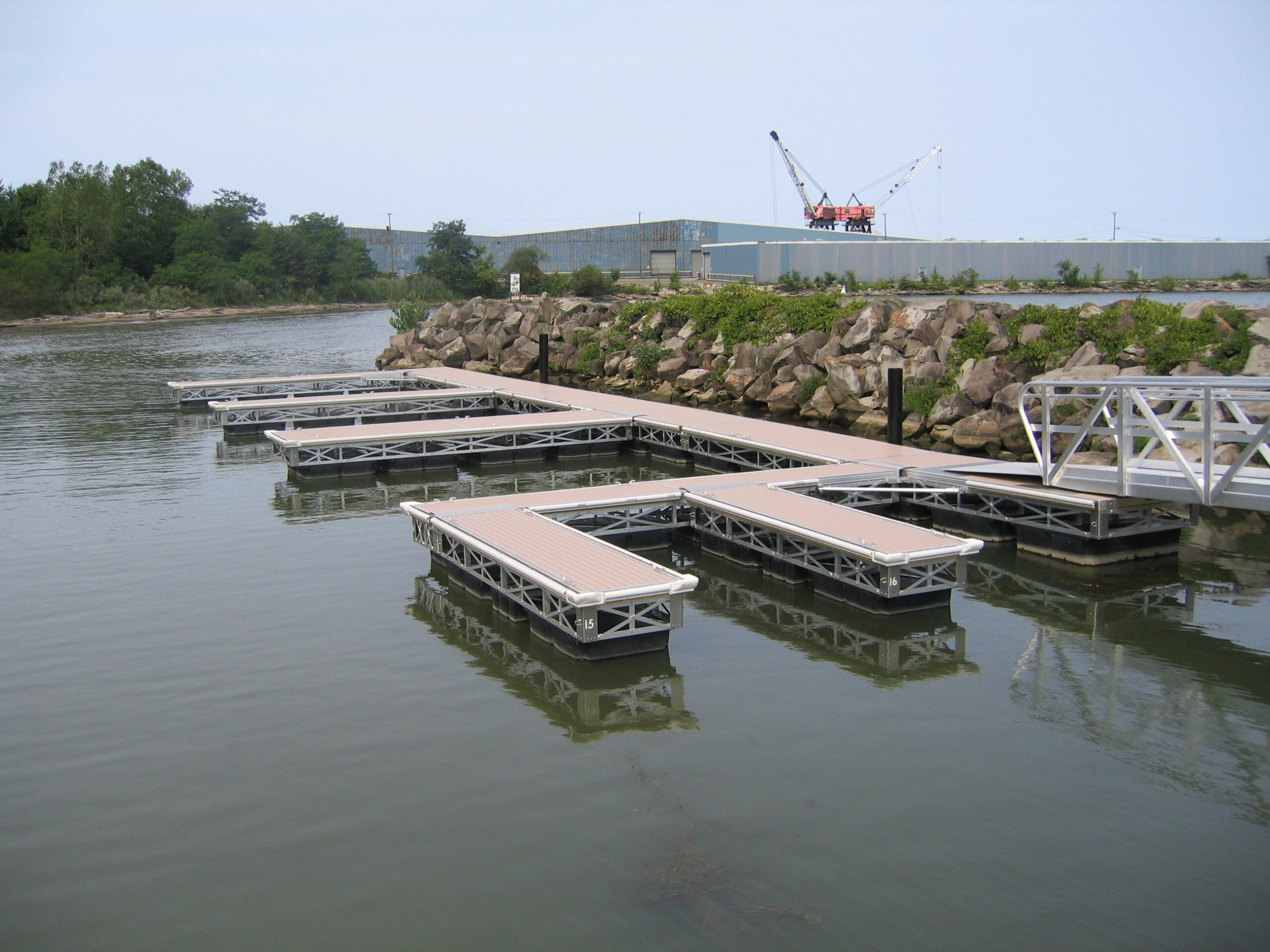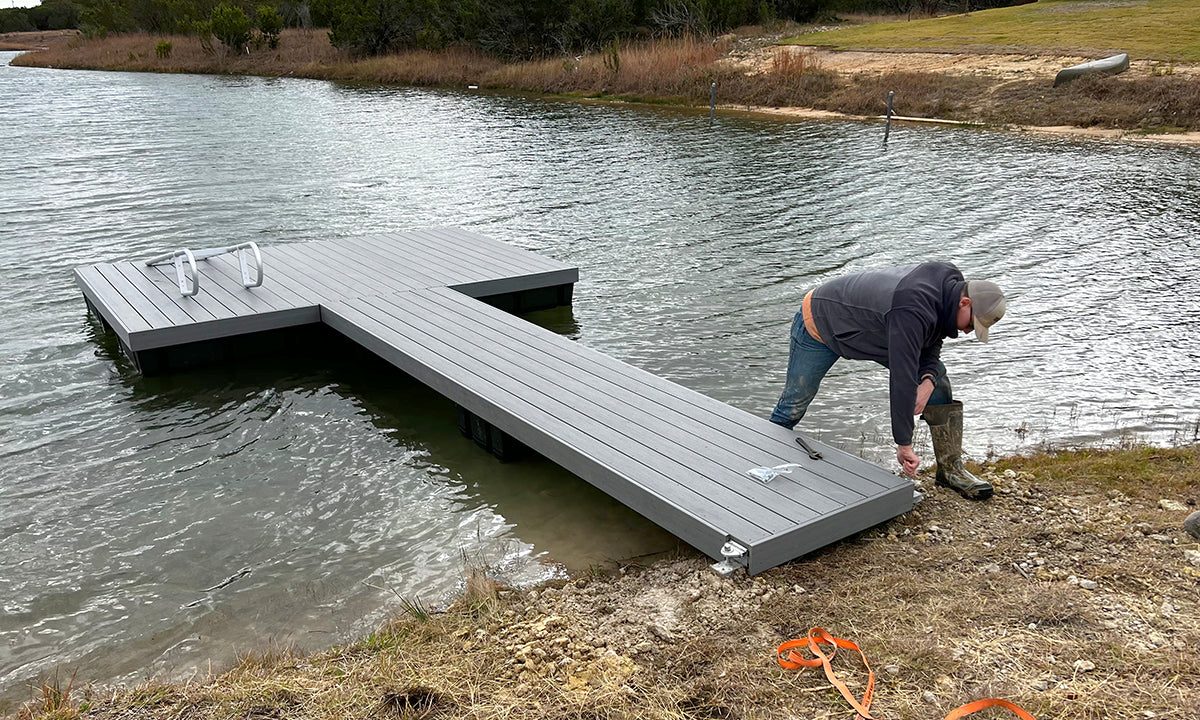Discover the Range of Floating Dock Solutions Designed to Suit Every Seafarer's Requirements
Discover the Range of Floating Dock Solutions Designed to Suit Every Seafarer's Requirements
Blog Article
Floating Docks: The Perfect Selection for Versatile Water Access
Floating docks existing a compelling remedy for a variety of water accessibility requires, using adaptability that goes beyond conventional mooring choices. The modular nature of floating docks facilitates customization, catering to certain needs.
Advantages of Floating Docks
Floating docks offer numerous advantages that enhance water access for various applications. Their capability to drop and rise with changing water degrees makes them especially helpful in settings with rising and fall tides or seasonal variations. This flexibility guarantees that vessels can easily anchor without worry for the water's deepness, supplying a reputable system for entertainment, business, and industrial uses.
Furthermore, floating docks are typically created from resilient products that withstand corrosion, making them suitable for long-lasting use in marine environments. Their installment is typically much less invasive than typical fixed docks, reducing the environmental influence and assisting in quicker deployment (floating dock services). This versatility enables easier moving or reconfiguration according to user demands or environmental changes
Safety and security is an additional essential advantage; floating docks can provide secure gain access to for people disembarking or boarding from boats and decrease the danger of crashes connected with unpredictable surfaces. Additionally, they can be created to accommodate a range of devices, such as cleats and fenders, enhancing functionality. On the whole, floating docks represent an efficient remedy for enhancing water accessibility across varied markets while advertising safety and environmental sustainability.

Sorts Of Floating Docks
Numerous types of floating docks accommodate various needs and atmospheres, each created with specific functions to optimize functionality. The most typical kinds include modular docks, which consist of interlocking sections that enable easy personalization and expansion. These docks are optimal for recreational usage, as they can be tailored to fit numerous boat dimensions and water conditions.
Another popular alternative is the fixed floating dock, which continues to be secured in position yet floats with transforming water degrees. floating dock company. This kind is particularly suited for areas with minimal tidal fluctuations, supplying stable access for angling or swimming. Additionally, there are drive-on docks, which include a sloped style that permits watercrafts to conveniently drive on and off, making them suitable for personal watercraft and smaller sized vessels
For business applications, durable floating docks are available, constructed from reinforced materials to withstand considerable lots and extreme marine environments. Last but not least, green floating docks utilize lasting materials and designs to reduce environmental influence, commonly incorporating attributes like vegetation to support neighborhood wild animals. Comprehending the numerous sorts of floating docks makes sure that individuals can select the most appropriate solution for their particular demands.
Installment Process Summary
A successful setup of floating docks needs mindful planning and attention to information to guarantee optimal performance and safety and security. The initial step involves examining the site problems, including water deepness, existing, and prospective barriers. This analysis notifies the selection of the ideal dock materials and layout customized to the specific atmosphere.
Following, obtaining needed authorizations is important, as many jurisdictions have regulations relating to building and construction on water bodies. The installment can continue when consents are safeguarded. Begin by preparing the foundation, which may entail anchoring systems or pilings tailored to the dock kind and neighborhood problems.
Following the foundation configuration, set up the dock sections according to supplier specifications. Make certain that all parts are securely secured and lined up to stand up to ecological stress and anxieties. Position the dock in the assigned area, ensuring it is degree and steady.

Maintenance Tips and Best Practices
After the setup procedure is full, recurring maintenance plays a vital duty in ensuring the durability and capability of floating docks. Regular examinations need to be conducted to determine any type of indications of damage, damages, or wear - floating dock services. Examine for any kind of loose installations, splits, or splitting up in the dock sections, as these can endanger structural stability
Cleaning the dock is important to get rid of particles, algae, and look here other build-up that can affect its look and safety and security. Use a gentle stress clean periodically to keep sanitation without causing damage to the surface. Additionally, using a protective sealer every couple of years can assist improve long life and resist ecological wear.
Take notice of the mooring lines and supports, guaranteeing they are protected and complimentary from corrosion. Change any kind of abject components quickly to stay clear of threats. Seasonal changes may likewise site web be necessary; during severe climate problems, enhancing the dock or rearranging can protect against damages.
Applications for Floating Docks
Floating docks offer a wide variety of applications, providing to both business and recreational requirements. In recreational setups, they offer smooth accessibility to rivers for tasks such as boating, angling, and swimming. Their flexible nature enables setup in differing water levels, making sure secure and secure gain access to regardless of tidal variations.
Readily, floating docks are indispensable for marinas and waterside businesses. They help with the docking of vessels, allowing efficient filling and discharging of items. Their modular design permits for simple expansion or reconfiguration to fit altering company demands, making them optimal for watercraft rentals, trip procedures, or fishing charters.
Furthermore, floating docks are used in ecological applications such as marine research and habitat repair. They can work as platforms for scientific studies, checking water high quality, or conducting wildlife surveys without disturbing sensitive ecosystems.
In industrial contexts, floating docks are employed in building jobs, giving accessibility to hard-to-reach areas for tools and workers. Their flexibility, longevity, and minimal impact on the setting make them an optimum choice for a large her explanation range of applications, enhancing both functionality and availability in different water-based atmospheres.
Conclusion
In verdict, floating docks stand for an ideal solution for diverse water gain access to needs, owing to their adaptability, toughness, and modular design. These structures assist in safe mooring for numerous applications while reducing environmental impact during installment. The decreased upkeep demands better enhance their practicality. Floating docks serve as an important asset for recreational, business, and environmental projects, making sure reliable access to rivers and promoting lasting methods in water settings.
Floating docks existing an engaging option for a variety of water gain access to requires, providing flexibility that goes beyond standard mooring choices.Floating docks deal many benefits that boost water accessibility for numerous applications. Overall, floating docks stand for an effective solution for improving water access across varied markets while promoting safety and security and ecological sustainability.
An additional prominent option is the stationary floating dock, which remains secured in location yet drifts with altering water degrees.In final thought, floating docks represent an ideal remedy for diverse water gain access to needs, owing to their adaptability, resilience, and modular design.
Report this page